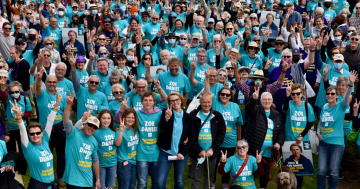
Sharing economy v. An economic system based on sharing of access to goods, resources, and services, typically by means of the Internet.
You knew the arrival of ridesharing service Uber had disrupted the taxi business, but did you also know it has disrupted the very language we speak, inspiring rapid uptake of 2015’s word of the year, “sharing economy”?
The ANU-based Australian National Dictionary Centre selected sharing economy as word of the year due to its increased prominence and frequency of use in the nation this year.
“Sharing economy had a special prominence in Australia in 2015 partly due to the impact of debates around the introduction of ridesharing service Uber into Australia, which has been seen as threatening the taxi industry,” Australian National Dictionary Centre Director Dr Amanda Laugesen said.
The sharing economy is facilitated by online technology, and while most often associated with ridesharing and accommodation sharing apps like those for Airbnb and Uber, it can also include collaborative efforts such as crowdfunding.
“The term sharing economy has feel-good connotations in emphasising sharing. Some regard it as a positive good for society, but others have pointed to its corporate dimensions and its potential to displace industries and businesses,” Dr Laugesen said.
Sharing economy was chosen from a shortlist including the terms dark web, lawfare, marriage equality, and periscope.
Dr Laugesen said this year a number of terms relating to economic, cultural and social change found their way into the media landscape, particularly those stimulated by the impact of digital technology.
Periscope is a live streaming app that allows a mobile phone to be used to record and broadcast video in real time.
“We saw new social media technologies such as periscope gain ground,” she said.
“The name is already being used as a verb. A number of official events have been periscoped, including an ACT cabinet meeting in August.”
Dark web refers specifically to websites that use encryption tools to hide the identities of hosts and users of a site, often in order to facilitate illegal activities.
“The term dark web also became more prominent through 2015, attesting to the more dangerous capacities of the web”, she said.
Lawfare refers to the use of the legal system to effect a political or social outcome and was used in Australia particularly in environmental activism contexts, while marriage equality refers to the legalisation of same-sex as well as heterosexual marriage.














